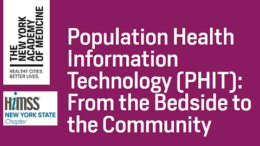Health Analytics, Informatics and HIEs with Infor’s Nurse Executive Beth Meyers
By Sarianne Gruber – Beth Meyers’ passion is bringing technology into the real world of patient care as an adjunct to the expertise of clinical care providers. Luckily, I was able to secure a seat at Ms. Meyer’s presentation on BI Transformation into Insights recently.
Read More








